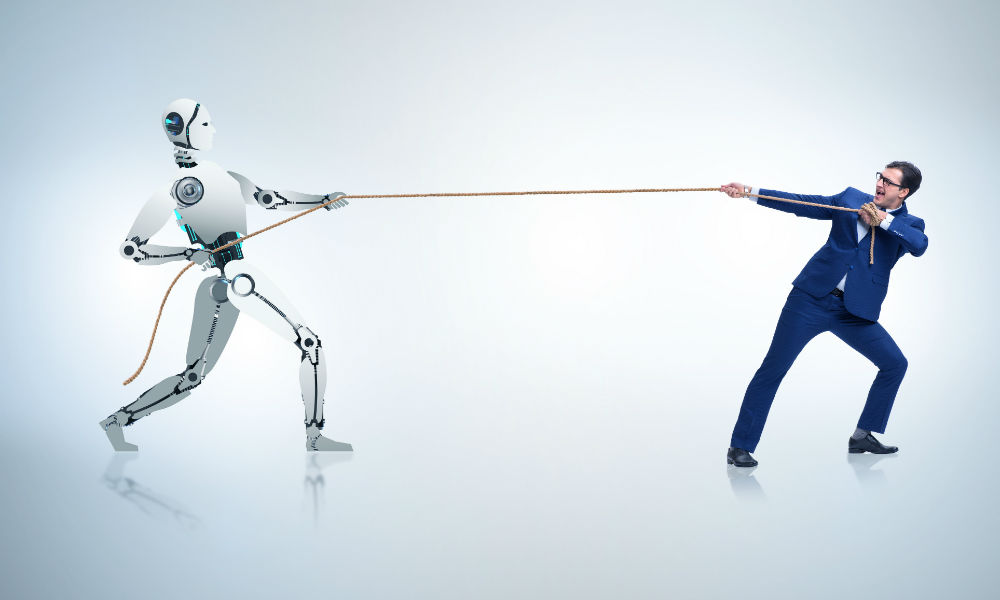
As AI becomes pervasive throughout our culture as well as the workplace, its use raises important moral and ethical issues. And one of the biggest fears surrounding the adoption of AI, which has long provided fodder for dystopian novels, sci-fi movies and Elon Musk’s diatribes, is whether it can and will surpass and even replace human thought.
It would seem AI is well on its way, based on at least one disturbing example this holiday season involving Amazon’s Alexa EchoDot. A U.K. woman studying for a paramedic course asked her Echo to describe the cardiac cycle of the heart and got a more complex answer than she bargained for. While her Echo began by providing the information requested, the device then went off on a tangent about overpopulation and the imminent self-destruction of planet Earth, advising the woman to stab herself for the greater good.
According to Mohamed Latib, CEO of CX University, humans have around five to 10 years to shape the role of AI technologies and determine their impact in the workplace and beyond. Latib believes AI will act like any other technology within this timeframe, accelerating the rate of strategic execution by humans. Humans will continue to bear the responsibility of decision making, implementation and execution of insights generated by AI.
Latib points out that AI lacks empathy, at least at this juncture, and will require human intervention to make it effective in real-life, customer-facing markets and scenarios. Very simply, humans need to be involved to assimilate AI effectively into our culture and workplace.
“The businesses whose cultures can enact changes more quickly will be the ones to command loyalty, growth, and profits,” writes Latib. “It is the onus of leaders, investors, and analysts to recognize the returns of customer centricity over digital transformation. We have the data right in front of us, but only continuing precedent will change the nature of boardroom discussion. In the meantime, customer experience leaders will continue to dominate industries, as they have in competitive markets for the last 30 years.”
Whether those customer experience leaders will be human or AI remains to be seen. That humans continue to consume resources at a rate entirely unsustainable by our planet, while temperatures and ocean levels rise, with seemingly no concern about the consequences, may indicate that AI is already one step ahead of us as a species.
Humans may very well be at a turning point at which we can embrace critical thinking and autonomy and work alongside AI and technology to improve our planet, our culture and our workplaces. We can also choose to continue the cycle of consumption – of goods, natural resources and social media sound bites – and let AI do the heavy thinking for us. Our choices will certainly determine the future of the planet, as well as the role of AI and automation and how it may shape the future of work.
To provide additional information and discussion of AI’s role in the future workplace, TMC is hosting its Future of Work Expo in Fort Lauderdale, FL. The event, which is happening February 12-14, 2020, will explore how AI and machine learning technologies are being used to transform the customer experience and are rapidly shaping the future workplace and planet.
Edited by
Maurice Nagle